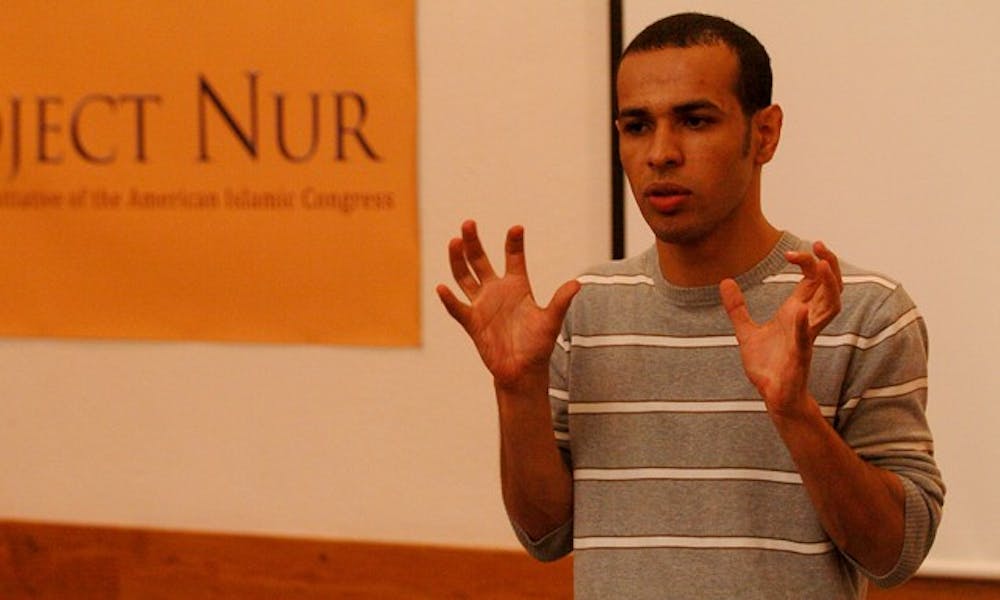Every year, as many as 5,000 women are murdered by their families in the name of honor, according to statistics compiled by the United Nations.
Ahmad Ghashmari, a Jordanian Ph.D. student at Kent State University, spoke Monday night to raise awareness about such atrocities in the Breedlove Room of Perkins Library. Duke’s chapter of Amnesty International collaborated with the Muslim cultural organization Project Nur to bring Ghashmari to campus.
“What’s different about Ahmad is that he is not siding with a certain group but raising awareness to form an interfaith coalition against honor killings,” said Amnesty International Co-president Esther Jeohn, a junior. “We want the campus to understand various human rights issues, regardless of political beliefs, religion or background.”
Although concentrated in the Middle East and some African countries, interfamily murders occur around the world for transgressions such as rejecting an arranged marriage, conducting extramarital affairs and dressing immodestly, Ghashmari said. Tribal culture and tradition compels families to rid themselves of the shame by murdering the offending girl.
“The purpose of these killings is to reclaim the honor that was harmed by the female’s actions,” Ghashmari said. “Men are considered to be the leaders and women are second-class citizens.”
Countries like Jordan and Syria issue light punishments to these men, often jailing them for less than six months, he added. The lenient laws have allowed the practice to persist for centuries.
Ghashmari said he first encountered honor killings at age 19 in his hometown of Irbid, Jordan. After a young woman in a neighboring family was raped, her parents arranged her hasty marriage to a 70-year-old man in hopes of covering up the incident.
“Her husband soon found out and left her, so now she was raped and divorced,” Ghashmari said. “It gets even worse. The parents handed a gun to her younger brother and asked him to kill her. And he did.”
Based on this story and others like it, Ghashmari said he decided to combat the injustice by working as an Arab human rights activist. For the next five years, he took part in grassroots efforts to improve tribal laws and inform others about the hidden honor killings.
Ghashmari noted that although other human rights coalitions sometimes fail to reach beyond U.S. borders, he wants to overcome their shortcomings by communicating with the villages directly.
In addition to speaking with college students, Ghashmari has traveled to the Middle East in order to understand the motives behind the murders.
“We need to reach them and make ourselves heard by creating a caravan of awareness,” Ghashmari said. “Most of the people who practice this tradition hardly speak Arabic—how will they get the message when we only work from America and speak in English?”
Ghashmari provided students with numerous ways to get involved in combating honor killings, ranging from formally joining his coalition to raising awareness. Because honor killings are largely an undocumented practice, he said voicing the issue can have significant consequences.
“We often think that if we simply understand human rights issues, then we are doing our part,” Jeohn said. “We have to combine forces with others all over the world and actively challenge the violation of rights. Ahmad Ghashmari encourages students to do just that.”
Sophomore Ariel Spigel said she emerged from the discussion with a fresh take on honor killings. She added that students need to gain knowledge about this issue that is often conducted behind closed doors.
“Increasing the awareness here can spread worldwide and will hopefully have a huge impact,” Spigel said. “You got to start somewhere.”
Get The Chronicle straight to your inbox
Signup for our weekly newsletter. Cancel at any time.

